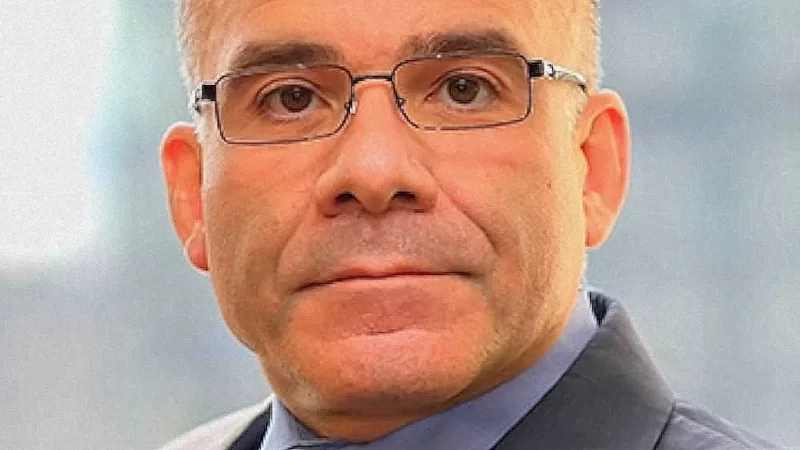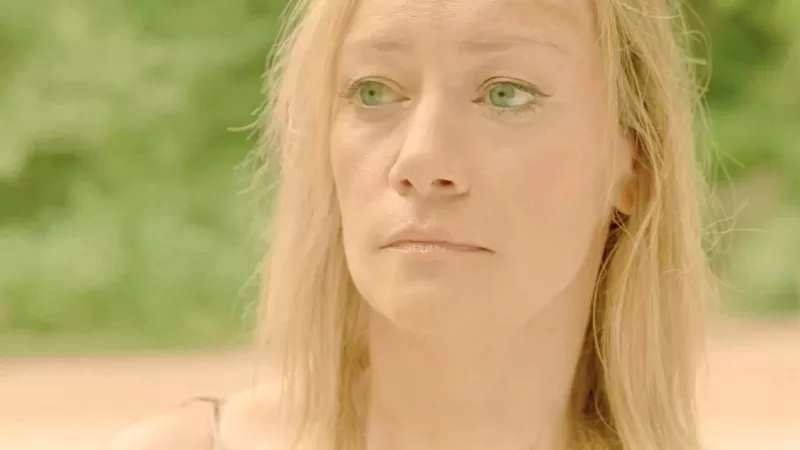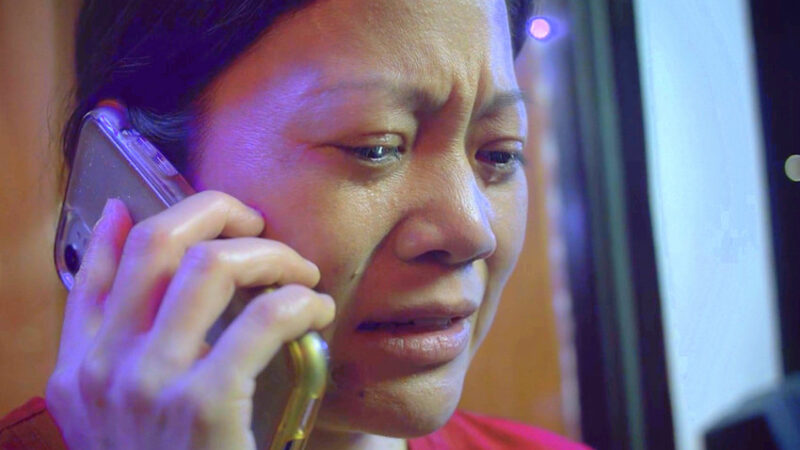
indieactivity: How did you get into writing? How would you describe your style?
Jiwon Lee (JL): I got into writing very naturally because I think I’ve always had a love for storytelling. I first learned the English language by becoming an obsessive book nerd (shoutout to A Series of Unfortunate Events). Which naturally made me want to write books myself. I indeed ended up self-publishing a novel and a memoir throughout middle school. And I was always first in line to submit to any creative writing competitions at school.
After the move from China (where I was attending school at the time) back to Korea in middle school. I initially had a hard time adjusting to a Korean school where English wasn’t the primary language. My mom tried to cheer me up by taking me to the movies at night. Which was how I also became obsessed with movies. Eventually, the two passions converged into the dream of writing movies. Which was what led me all the way here to Los Angeles!
I would say I’m most comfortable writing dark or absurd comedies. I’ve often heard from friends that I have an absurd sense of humor. Which I think comes from a coping mechanism of some sort. I love seeing things being taken to the extreme. Having a good laugh at it, and then at the end of it all. You’re left with the feeling of ‘okay, so maybe I can get through the absurdities in my life too.’ At the same time, I love mellow slice-of-life television and movies. And I think I often lean toward one or the other or end up mixing the two.
The Official Trailer for Call for Cassie written and directed by Jiwon Lee
What’s your usual process for writing?
Jiwon Lee (JL): I think when I’m writing for leisure, it always starts with a random spark of inspiration. An abandoned building I saw on the street. An artifact at the museum. A random memory from my childhood… And, then if it’s good enough of an idea, it will keep circulating in my head. And I’ll continue attaching more characteristics and plot points to it. Once, it reaches the point of, ‘oh, I see a clear act 1, 2, and 3.’ I will sit down and write a one-page synopsis. From there, it’s breaking the synopsis into 8 sequences with a clear objective. Filling out scenes, and then finally writing the dang thing. Of course, many revisions based on feedback from other people follow.
Without giving anything away. Tell us a little bit about the script of ‘Call for Cassie,’ how did you come up with the idea?
Jiwon Lee (JL): When I lived in China, I loved getting cheap massages from a massage place near our apartment. I had a very unique relationship with my masseuse. I thought, because we only see each other every once in a while, but she’d comment on my body in ways I didn’t know — like how I gained weight, lost weight, became pale, not pale, etc. And I realized that she, despite us not knowing each other’s names or anything about each other really, is the one person who would know the most about my body because she’s interacting with it the most.
That strange irony of it all made me want to explore the idea of a masseuse and their jobs. That with my personal experience with living in the United States as a foreigner led to the creation of ‘Call for Cassie.’
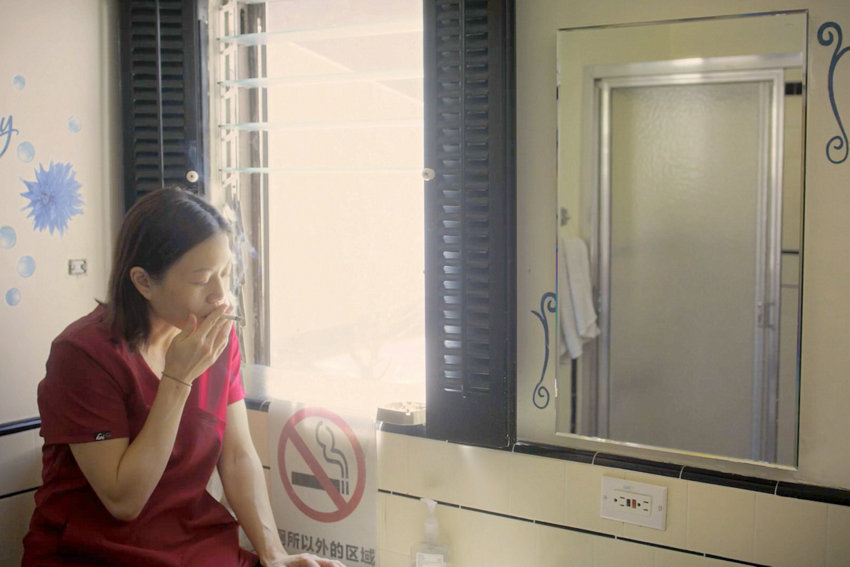
When and how did you decide to direct the script for ‘Call for Cassie’ yourself?
Jiwon Lee (JL): Initially, I’d have never imagined directing ‘Call for Cassie.’ Though I did live in China for a few years, I was not fluent in Mandarin. I didn’t quite feel confident that I’d portray Chinese culture accurately either. Once I was approached by a very talented friend/Chinese filmmaker about directing the script. However, I realized that I felt more attached to the script than ever. As a writer for indie shorts, your creative input really stops after you turn the script in to producers and directors. And ‘Call for Cassie’ especially felt so personal to me and my experiences that I didn’t want to say goodbye to it yet. That simple momentary urge made me go forward with directing ‘Call for Cassie’ myself
What went into the casting for “Call for Cassie”? As the writer, did you have any specific ideas for certain characters?
Jiwon Lee (JL): Our casting process was not easy as we had to find Mandarin-speaking actors for most of our roles. Fortunately, we did manage to find actors that fit my vision perfectly. While I didn’t have any specific ideas for the characters, I think what mattered more to me was the general vibe they gave off. For instance, we had candidates for Cassie who were wonderful actors but just didn’t quite “look” Cassie — something about them felt too sharp or something would stand out too much, or they would look too young.
The actor we ended up with, Christine, was the perfect image of Cassie, our everyday Chinese woman who could pass for a mother but had the physique and demeanor of a masseuse too. Another thing I valued in casting Cassie in particular was range. Cassie almost loses her control in the climax of our story, but she does it in a way that is silent and only to herself. I needed an actor who could convey that without going over the top.
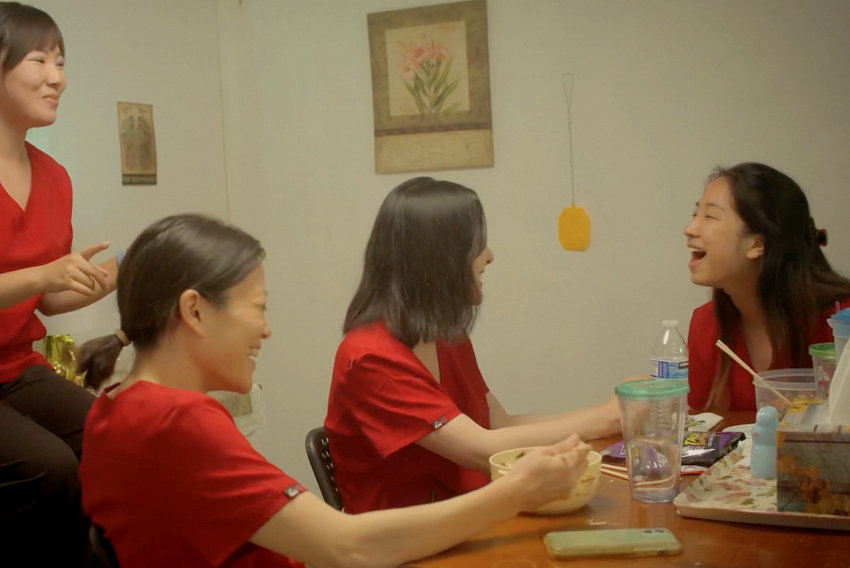
How did you manage writing Mandarin lines?
Jiwon Lee (JL): I initially wrote lines in English, then asked my producer to translate for me. On set, there would also be actors who preferred to say things differently, and after running that by my producer and my script supervisor (who also spoke Chinese), I let them make changes that felt more natural for them. I think it helped that I speak some Mandarin, as I initially wrote the lines with a grammatical structure and certain vocabulary, which I knew would translate to Mandarin well. It also helped on set as I could understand, generally, what the actors were saying, especially when Cassie’s colleagues were doing improv of their conversations.
I’m curious about the final scene. We hear Cassie’s son talk in Mandarin, yet, we are not provided with subtitles for what he’s saying. Was this your intention in the script as well?
Jiwon Lee (JL): Yes, that was always how the scene was meant to be executed. I wanted the audience’s attention on how Cassie was feeling while listening to her son talk, not at all on the actual words that her son was speaking. I believe I initially wrote “muffled voice of excited young son” in place of the actual dialogue.
Another reason for this was that it rarely ever works to give child actors specific dialogue, especially if its for mundane circumstances that are easy to imagine for them, like calling their mother. There were only two specific lines the son was supposed to speak, which was ‘are you crying?’ and ‘happy birthday.’
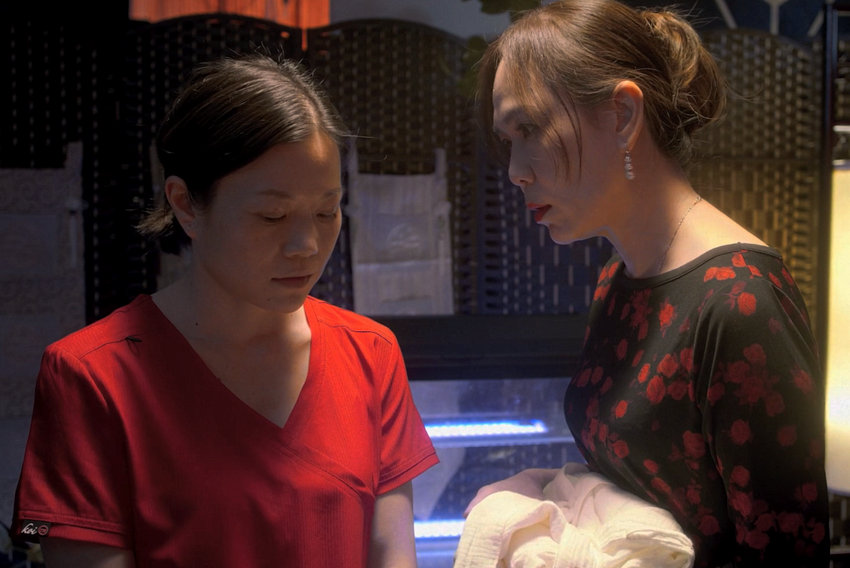
Who is “Call for Cassie” for? Who do you think would enjoy it the most?
Jiwon Lee (JL): As personal of a story ‘Call for Cassie’ is to me, I think I always had in mind that fellow Asian women would enjoy this story. Juggling between different identities and desires is a familiar experience to us, as we are often raised on values and expectations that differ with the Western world we are exposed to. I think that struggle is best embodied in Cassie, stuck between different cultures, different desires, and different forms of love.
I did notice that among the many themes Cassie deals with, audiences and even our crew members connected with the idea of the ‘mother’ the most — how Asian immigrant mothers sacrifice so much for the future of their children — which I’m so glad to see, as my own mother was definitely in the back of my mind as I was writing the script.
What are your goals with “Call for Cassie”?
Jiwon Lee (JL): Our festival run is close to coming to an end, but we still have one more theatrical screening left, which is on April 13 at the Regal Theater in Downtown Los Angeles. Hoping audiences can show up to watch it on the big screen there! I think afterward, we might consider distributing it through a short film platform or on public sites like YouTube. It has been a really fun journey, and I’m so proud of everything all of our creatives have accomplished!
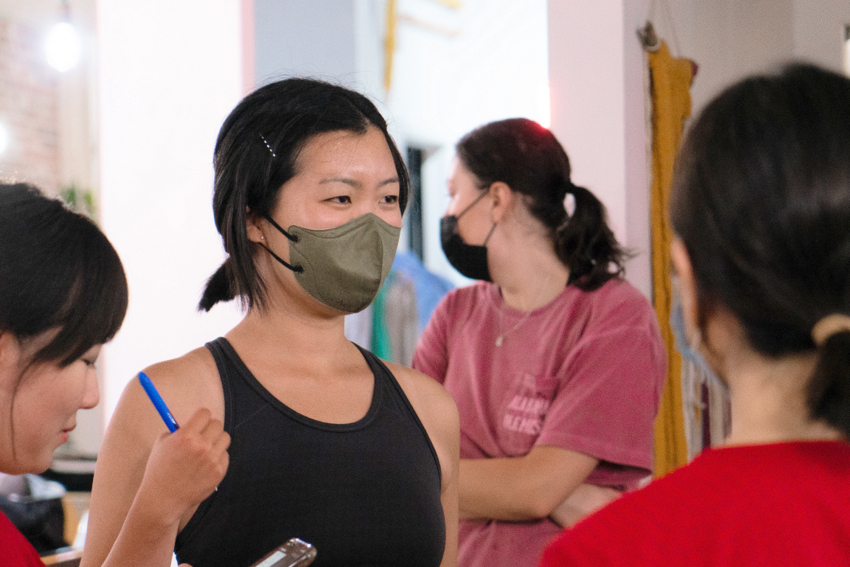
You’re currently working in the TV world. How does it compare with the indie scene?
Jiwon Lee (JL): I would say the main differences are more hoops to jump through but definitely more budget and help all around. I’m very used to working in the indie scene where you’re constantly struggling within budget constraints and having to put on many hats in addition to your main job.
From the past few months of working in the television (or streaming) industry, it’s really fun to notice how everyone’s jobs are so much more specialized and there are way more eyes and opinions to get approval from before anything proceeds. I love working in the indie scene, but I also enjoy how different opinions shape storytelling in the TV industry, and I hope to be able to learn more here, hopefully as a staffed writer in the near future!
What’s next for you? What are you working on right now?
Jiwon Lee (JL): It’s really a constant grind! At the end of the day, my dream is to get a feature script of mine get produced. I’m constantly working on features, one of which is a biopic and another a psychological melodrama involving slug monsters. Aside from writing, I’m also editing a science fiction short that I had written and directed last year, with the hopes of taking it on a festival run very soon. As briefly mentioned above, I’m also working as the showrunner’s assistant for Netflix’s XO, Kitty and it’s been so fun and educational to be in the room with our talented writers!
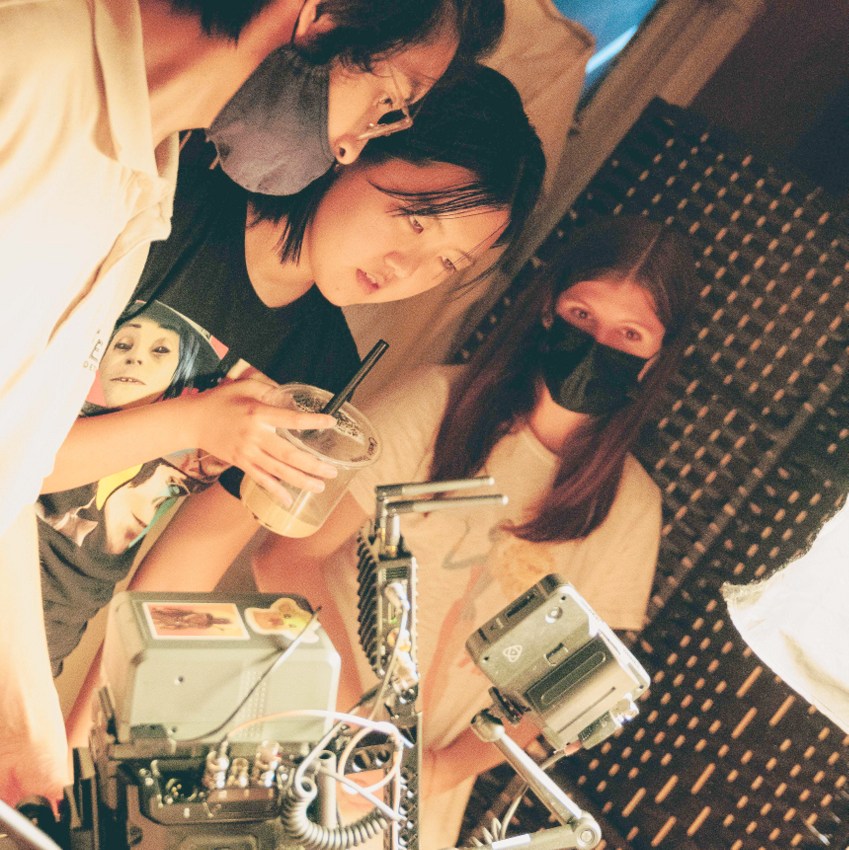
What would you recommend to a new writer at the beginning of his/ her journey? Any special courses, workshops, helpful books they can read?
Jiwon Lee (JL): There are so many useful books and lectures out there. Personally, the eight-sequence method I learned at school from Professor Irving Belateche has been the most helpful for me in crafting feature scripts especially. You can probably also learn about it online! We’ve heard of 3 act or even 4 act structures before, but dividing up into even smaller 8 pieces really helped me get a sense of what should be happening in each moment of the film, which is very helpful when you’re diving into writing features for the first time.
Another tip is to always share your writing with many people! At the end of the day, the ultimate purpose of your script is for audiences to watch it, and audiences come in various forms and sizes. Whatever feedback you get from friends, fellow writers, teachers, etc. will be helpful in revising your script.
Do be aware though that you don’t have to take every feedback literally. Flag things that seem worthy, but at the end of the day, it is your story and every feedback is meant to be ‘take it or leave it’ (unless you’re working in the studio system or with producers and investors — in that case their feedback obviously matters!).
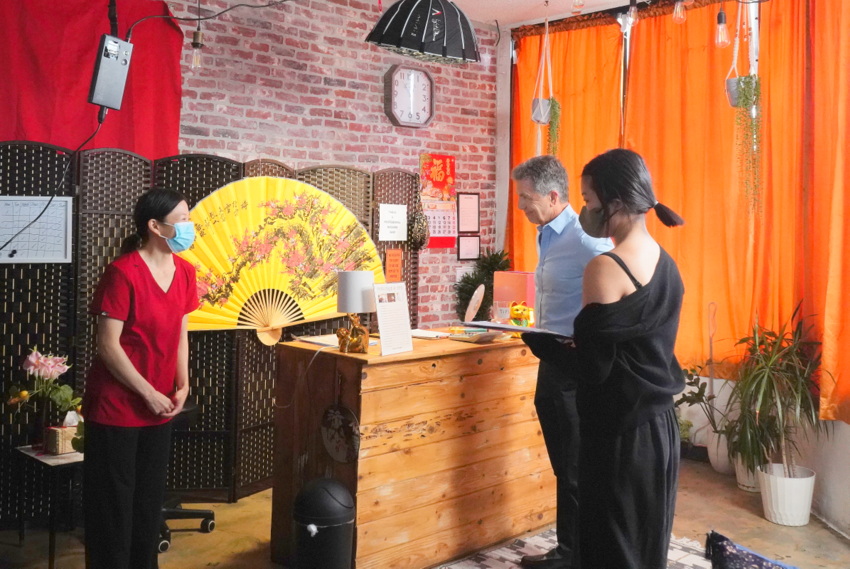
Tell us what you think of the interview with Jiwon Lee. What do you think of it? What ideas did you get? Do you have any suggestions? Or did it help you? Let’s have your comments below and/or on Facebook, Instagram, or Twitter.
FILMMAKER INTERVIEWS


